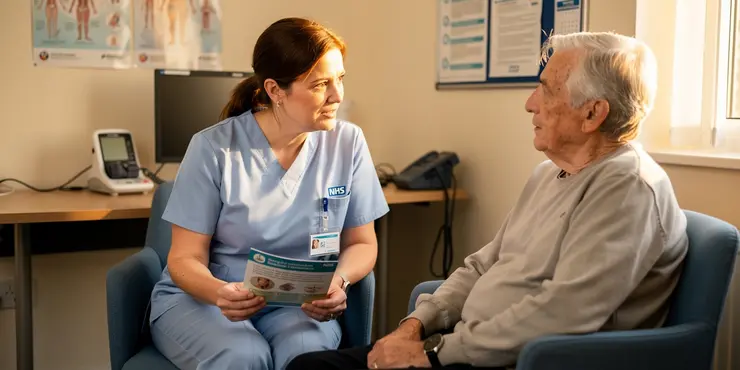
Find Help
More Items From Ergsy search
-
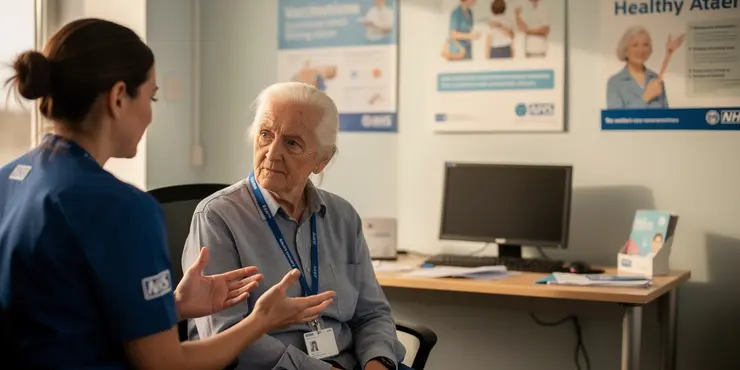
Can shingles be prevented?
Relevance: 100%
-
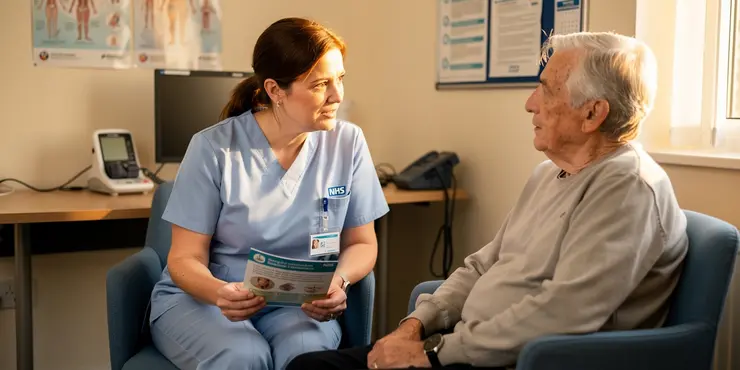
Can shingles be prevented?
Relevance: 99%
-
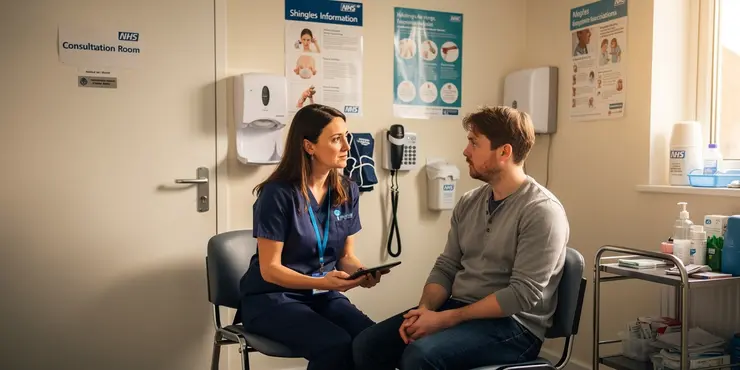
What is shingles?
Relevance: 79%
-
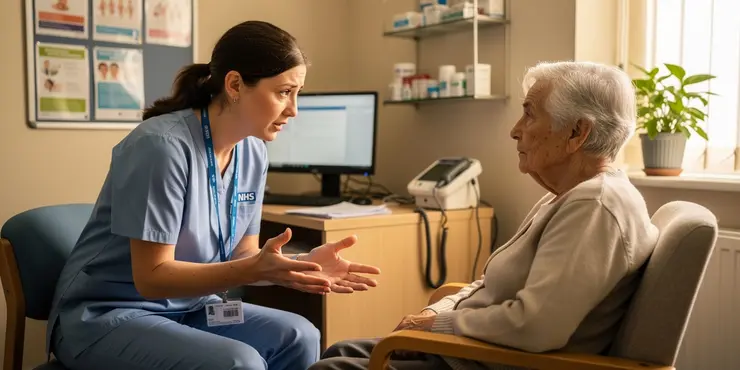
What is Shingles?
Relevance: 79%
-
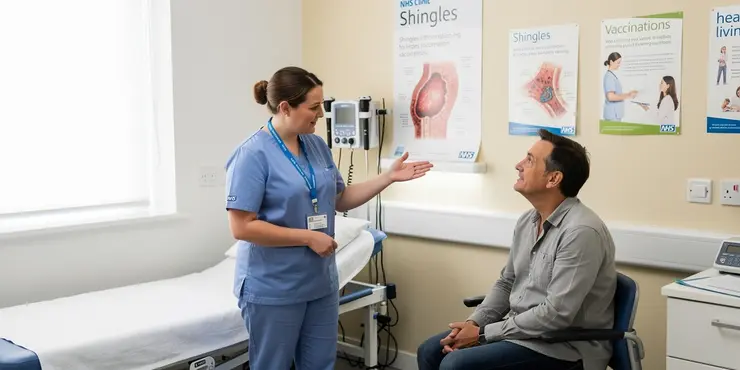
Is shingles contagious?
Relevance: 78%
-
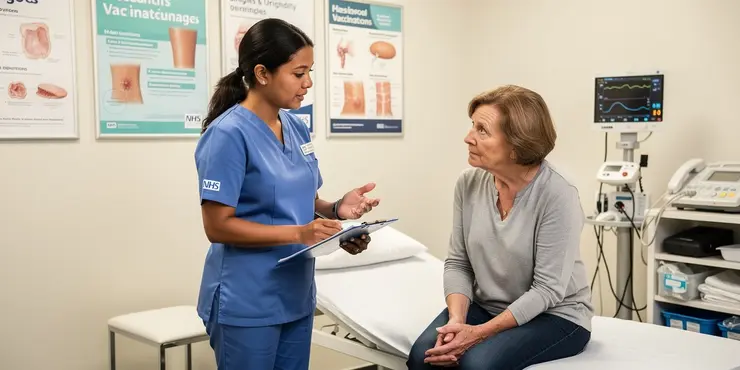
Is shingles contagious?
Relevance: 78%
-
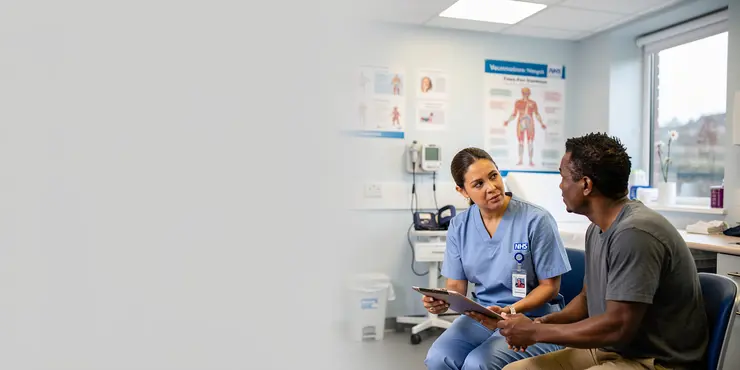
What causes shingles?
Relevance: 76%
-
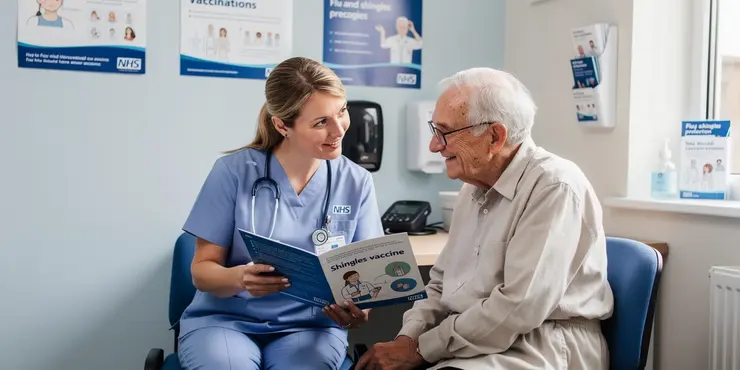
Is the shingles vaccine safe?
Relevance: 74%
-
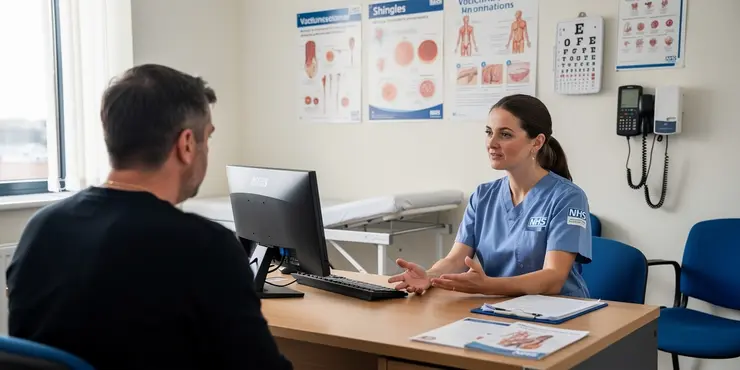
What causes shingles?
Relevance: 74%
-
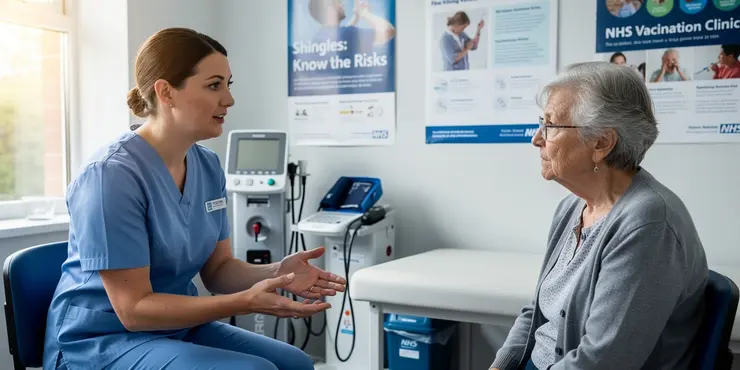
Are there any complications associated with shingles?
Relevance: 73%
-
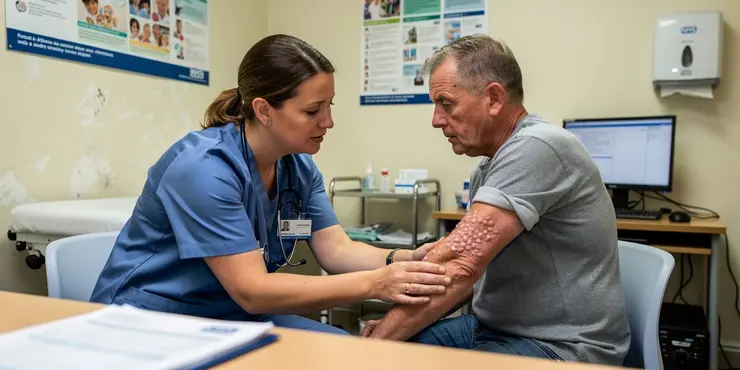
How is shingles diagnosed?
Relevance: 73%
-
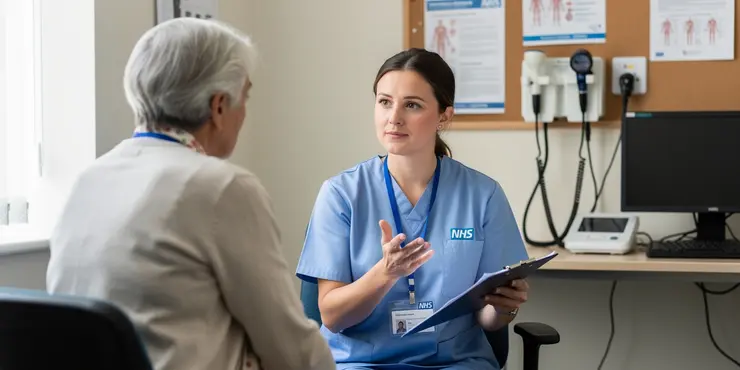
Who is at risk of developing shingles?
Relevance: 73%
-
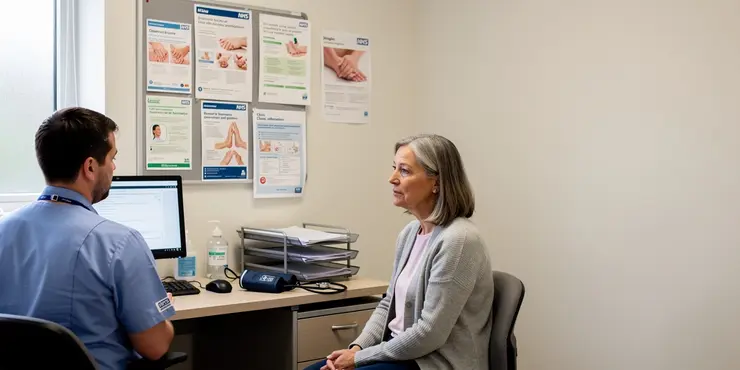
What treatments are available for shingles?
Relevance: 71%
-
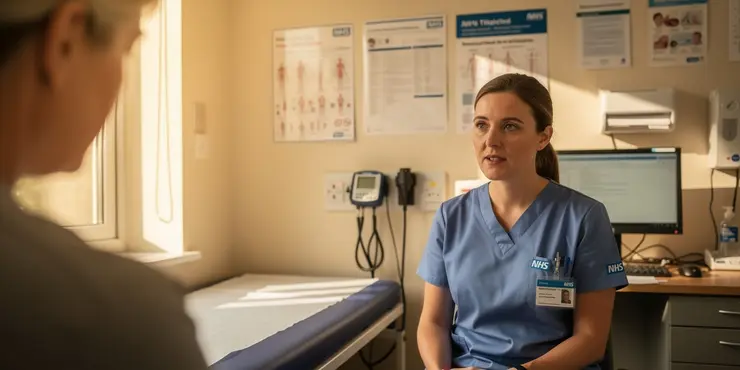
What treatments are available for shingles?
Relevance: 71%
-
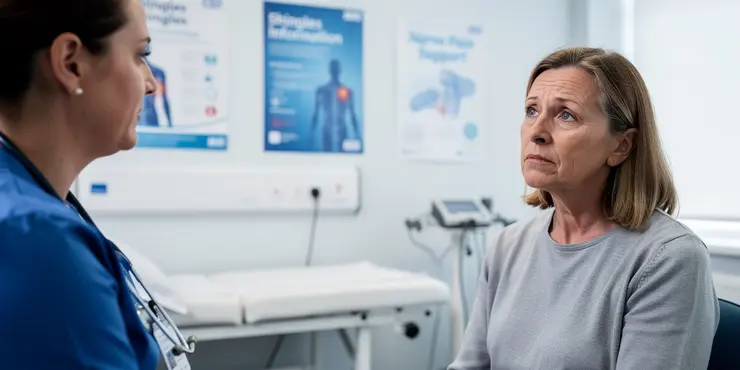
Are there any complications associated with shingles?
Relevance: 70%
-
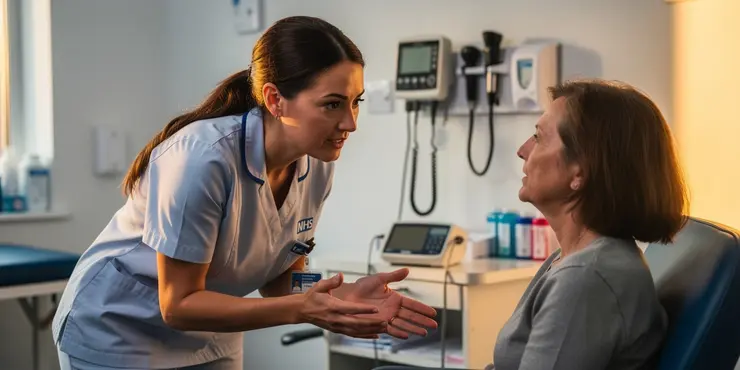
Can stress trigger shingles?
Relevance: 70%
-
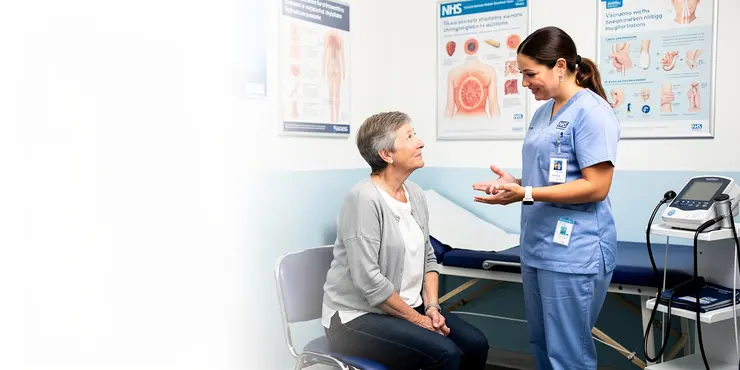
What are the symptoms of shingles?
Relevance: 70%
-
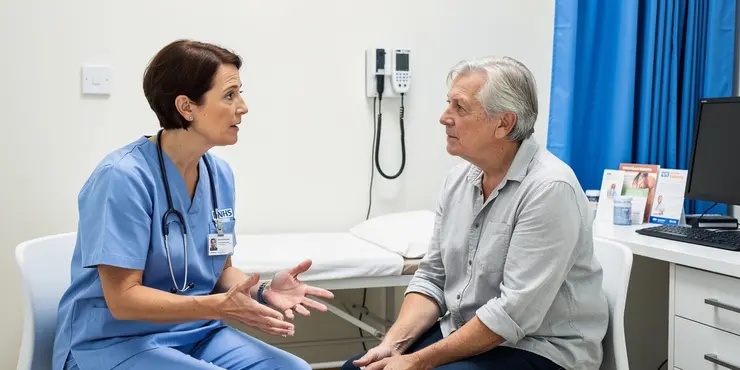
Can the shingles vaccine cause chickenpox?
Relevance: 69%
-
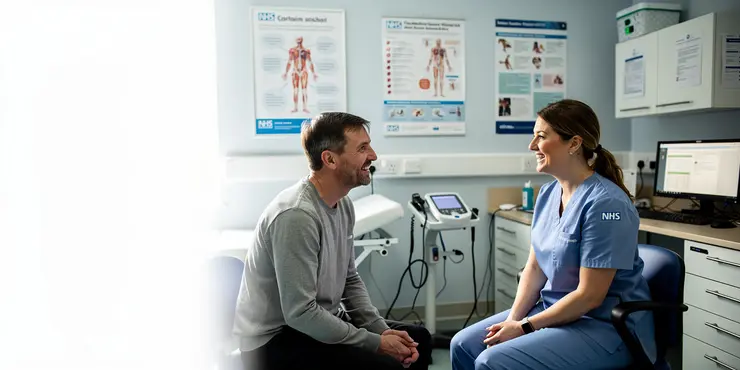
Can stress trigger shingles?
Relevance: 69%
-
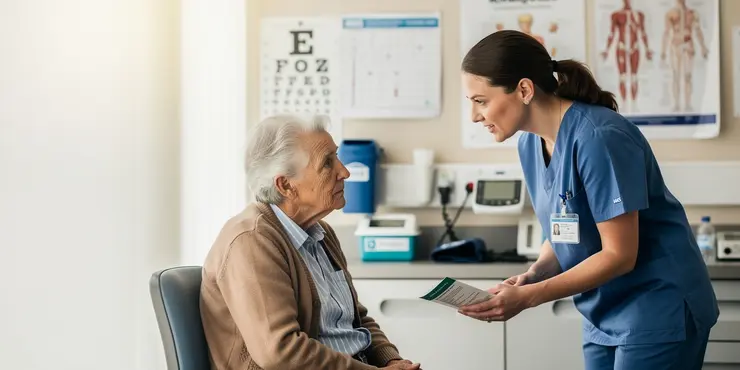
Can the shingles vaccine cause chickenpox?
Relevance: 69%
-
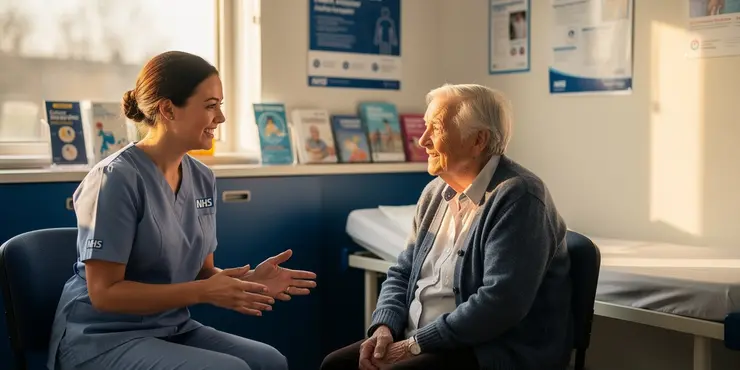
At what age should one get the shingles vaccine?
Relevance: 66%
-
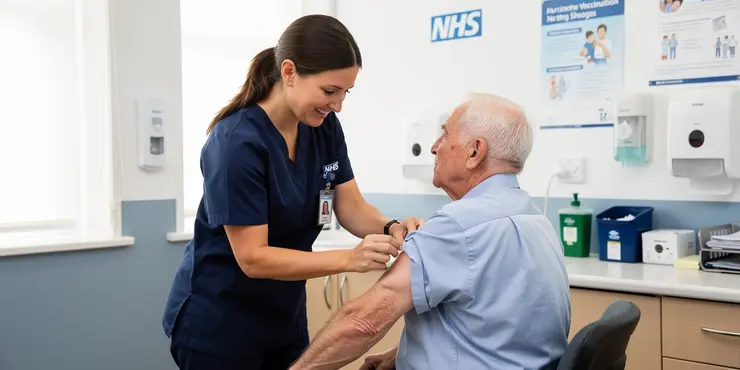
At what age should one get the shingles vaccine?
Relevance: 65%
-
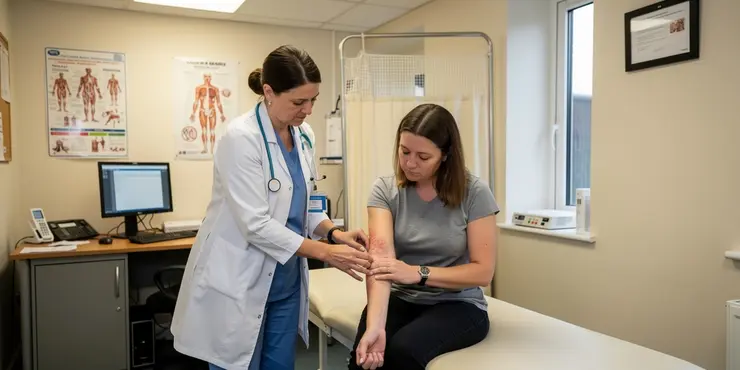
How is shingles diagnosed?
Relevance: 52%
-
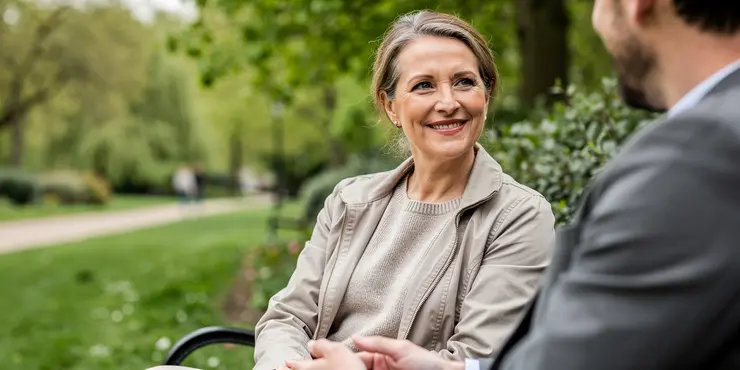
Who is at risk of developing shingles?
Relevance: 51%
-
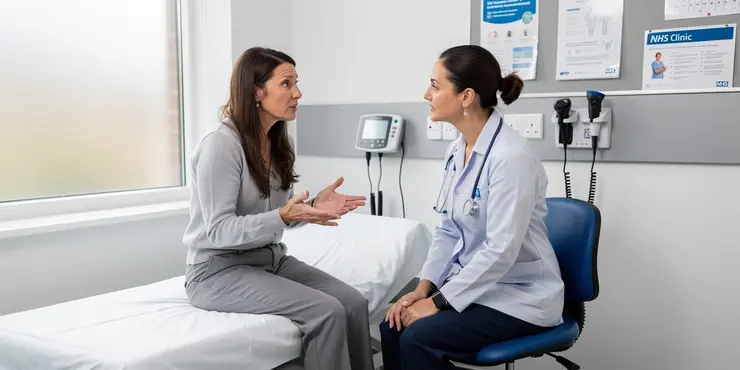
What should I do if I think I have shingles?
Relevance: 49%
-
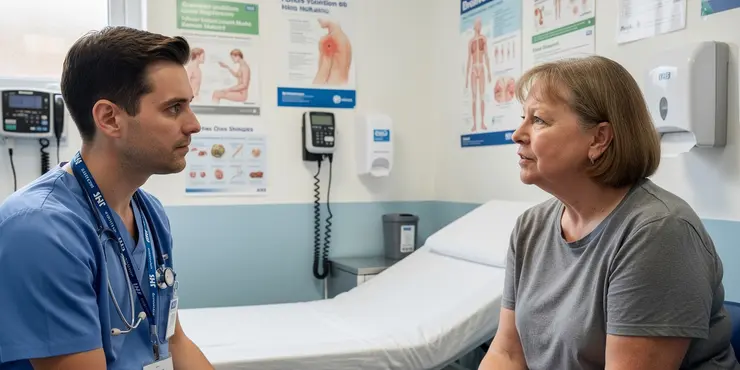
How long does a shingles outbreak last?
Relevance: 46%
-
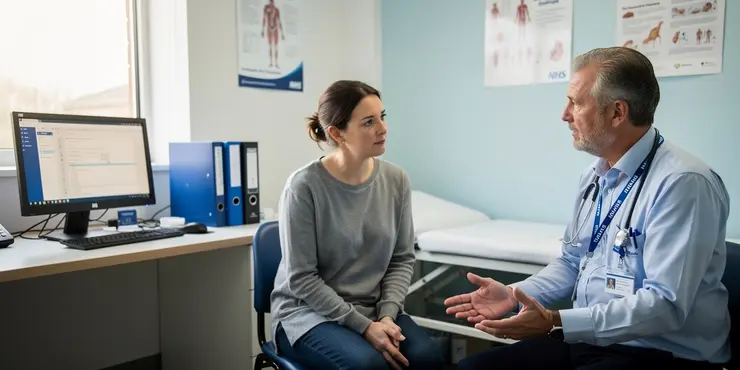
How long does a shingles outbreak last?
Relevance: 44%
-
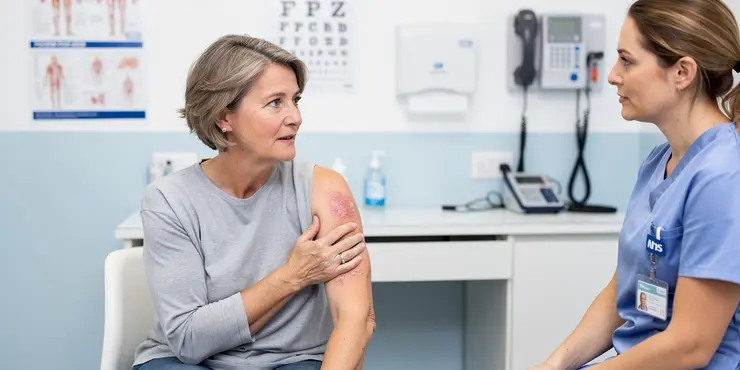
What is postherpetic neuralgia?
Relevance: 40%
-
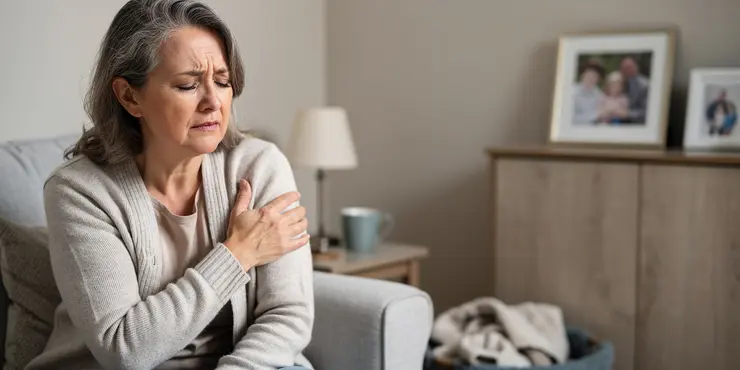
What is postherpetic neuralgia?
Relevance: 38%
-
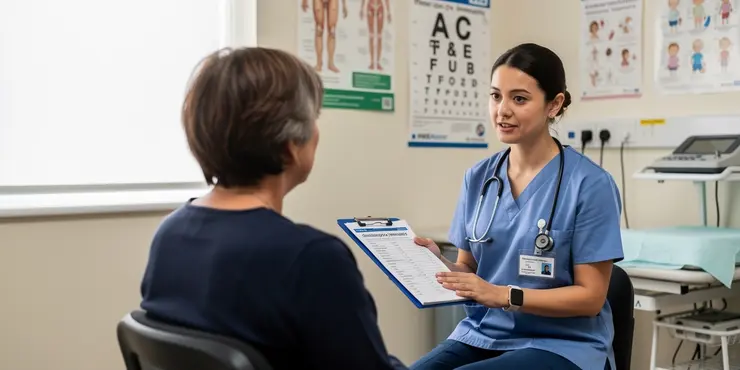
Can you get chickenpox more than once?
Relevance: 36%
-
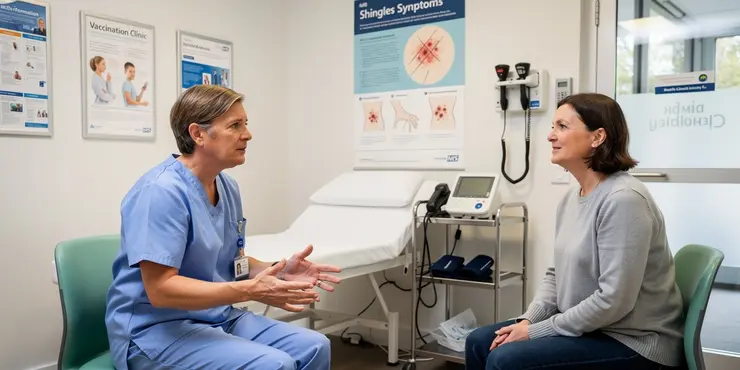
What are the symptoms of shingles?
Relevance: 32%
-
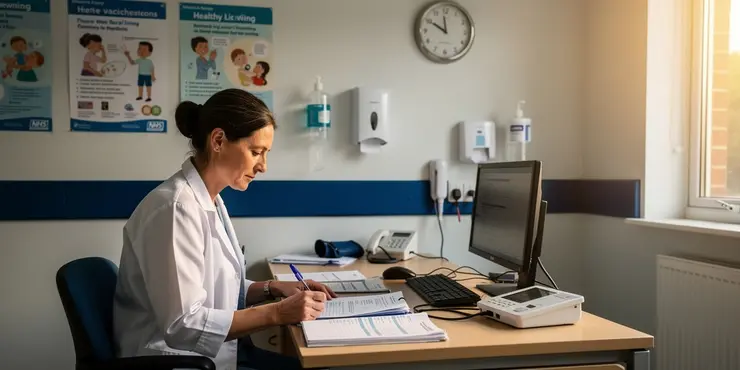
Can adults get chickenpox?
Relevance: 32%
-
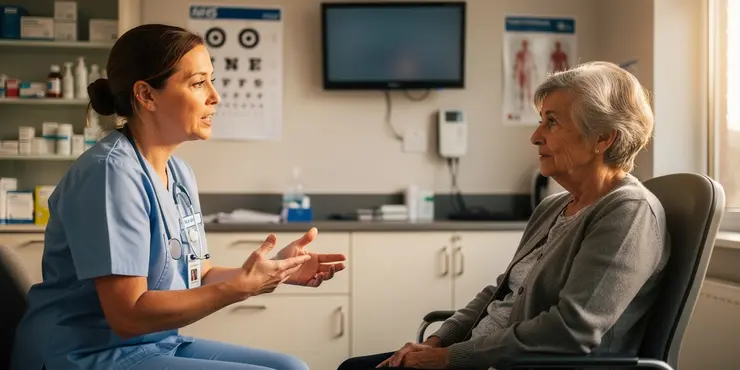
Can hypotony be prevented?
Relevance: 30%
-
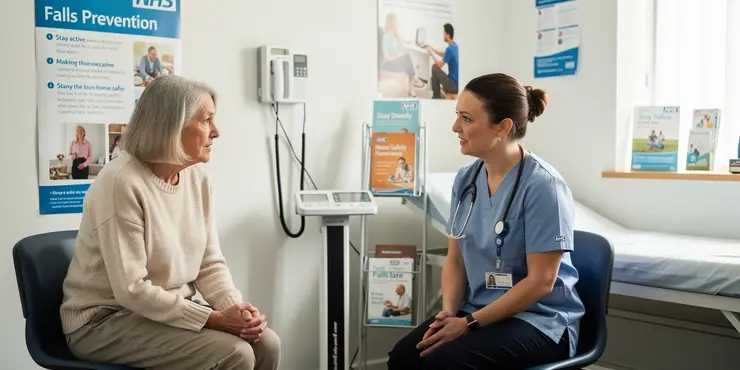
Falls Prevention Podcast
Relevance: 30%
-
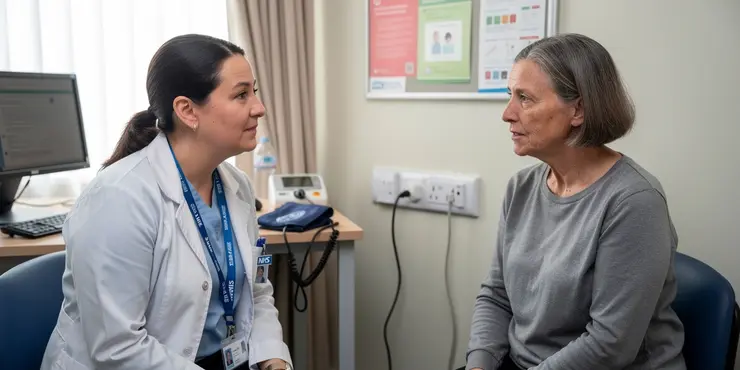
Can CFS be prevented?
Relevance: 30%
-
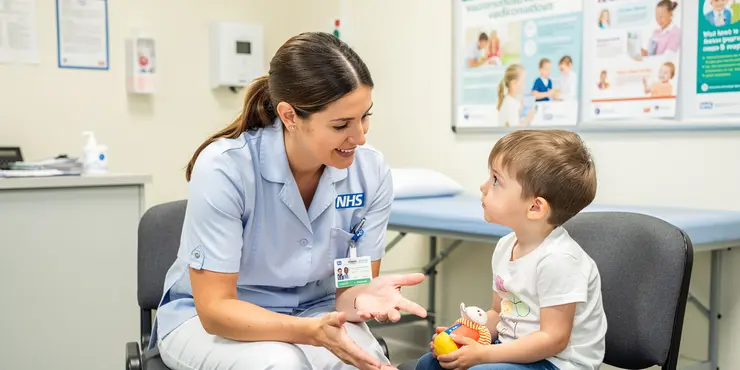
Can meningitis be prevented?
Relevance: 30%
-
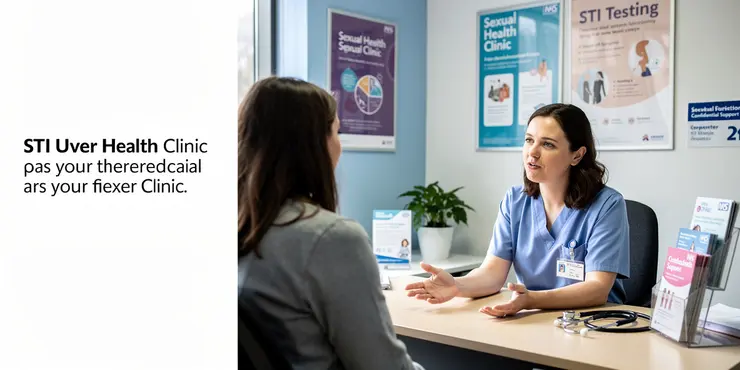
Can gonorrhoea be prevented?
Relevance: 30%
-
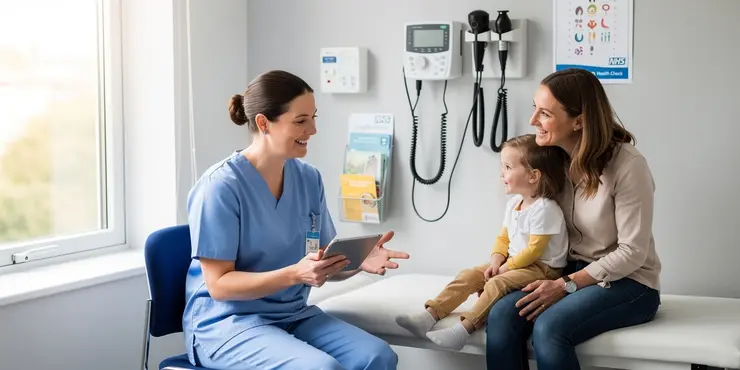
Preventative Care: What Your Family Needs
Relevance: 30%
-
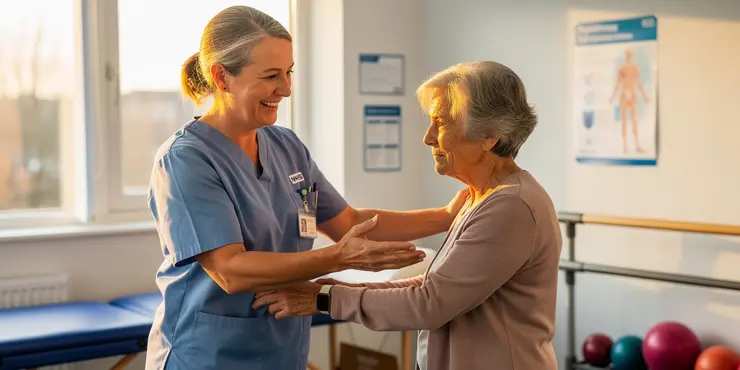
Falls and Falls Prevention
Relevance: 30%
-
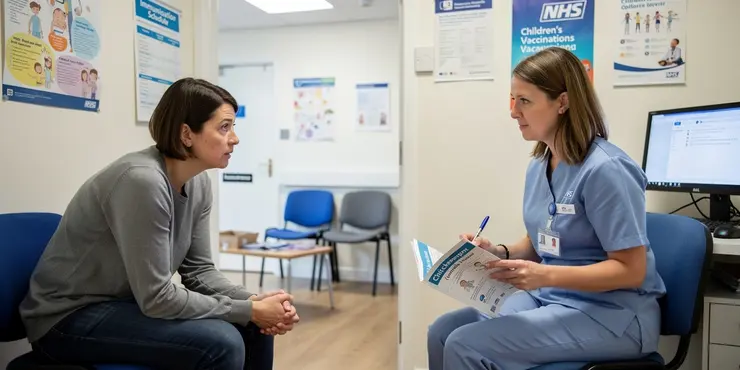
Can chickenpox be prevented?
Relevance: 30%
Understanding Shingles
Shingles, also known as herpes zoster, is a viral infection that causes a painful rash. It is caused by the varicella-zoster virus, the same virus that causes chickenpox. After a person has recovered from chickenpox, the virus lies dormant in the nerve tissue and may reactivate years later as shingles. The condition can be particularly concerning because of the potential for long-term complications such as postherpetic neuralgia, which is severe nerve pain that can last well after the rash has resolved.
Who Is at Risk?
Shingles can affect anyone who has had chickenpox, but it is most common in older adults and those with weakened immune systems. This includes people over the age of 50, individuals who are immunocompromised due to conditions like HIV/AIDS, cancer therapies, or other medications that suppress the immune system. Stress and illness can also trigger an outbreak. In the UK, it's estimated that one in four adults will develop shingles in their lifetime.
Vaccination: The Primary Prevention Method
The most effective way to prevent shingles is through vaccination. In the UK, a shingles vaccine called Shingrix is available, following the previous Zostavax, which has been less commonly used since Shingrix became the recommended option. The NHS offers the vaccine to people in their 70s as part of the national vaccination programme. Shingrix is a non-live vaccine and is given in two doses, which are administered 2 to 6 months apart. It provides strong protection against shingles and its complications, with studies showing it is highly effective in reducing the risk of developing shingles and postherpetic neuralgia.
Who Should Get Vaccinated?
Individuals aged 70 to 79 are eligible for the free vaccine on the NHS in the UK. It is advised that anyone within this age range get vaccinated unless they have medical conditions that contraindicate the vaccine. Additionally, people outside this age range who are particularly concerned about shingles or have underlying health conditions should discuss the option of receiving the vaccine privately with their healthcare provider.
Lifestyle and Health Considerations
While vaccination is the most effective preventive measure, maintaining a healthy lifestyle can also help reduce the risk of shingles. This includes eating a balanced diet, exercising regularly, managing stress, and supporting immune health. These lifestyle habits can strengthen the body's ability to fight off infections and may help lessen the severity or frequency of shingles outbreaks.
Conclusion
In summary, shingles is a preventable condition, particularly for older adults and those at increased risk. The introduction of the Shingrix vaccine in the UK has significantly enhanced preventive efforts. Vaccination, coupled with a healthy lifestyle, offers the best strategy to reduce the incidence of shingles and protect against its potentially debilitating complications. For more detailed advice and personal recommendations, individuals are encouraged to consult their GP or healthcare provider.
Understanding Shingles
Shingles is a virus that gives you a painful rash. The virus is called varicella-zoster. It is the same virus that causes chickenpox. After you have had chickenpox, the virus sleeps in your body. It can wake up and become shingles later, causing a rash. Shingles can be serious because it might cause bad pain that stays even after the rash goes away. This pain is called postherpetic neuralgia.
Who Is at Risk?
Anyone who had chickenpox can get shingles. It is more common in older people and those who have weak immune systems. People over 50 years old, or those with health issues like HIV/AIDS, cancer treatments, or medications that weaken the immune system, are more at risk. Stress and being sick can also make it more likely to get shingles. In the UK, about 1 in 4 adults will get shingles at some point in their lives.
Vaccination: The Primary Prevention Method
The best way to stop shingles is with a vaccine. In the UK, there is a vaccine called Shingrix. It is offered to people in their 70s by the NHS. Shingrix is given in two parts, with the second part given 2 to 6 months after the first. This vaccine helps protect you from getting shingles and the pain that can come after it. Shingrix is very good at reducing the chance of getting shingles.
Who Should Get Vaccinated?
In the UK, if you are between 70 and 79 years old, you can get the vaccine for free from the NHS. It is a good idea to get the vaccine unless a doctor tells you not to. If you are not in this age group but are worried about shingles, you should talk to your doctor about getting the vaccine.
Lifestyle and Health Considerations
Getting the vaccine is important, but you can also help prevent shingles by living healthily. This means eating good food, exercising, and keeping stress low. These habits help keep your immune system strong and might reduce the chance of getting shingles.
Conclusion
To sum up, shingles can be stopped, especially in older adults and people at higher risk. The Shingrix vaccine in the UK is a big help in preventing shingles. Getting the vaccine and living healthily are the best ways to lower the chance of getting shingles and the pain that can come with it. For more advice, talk to your doctor or healthcare provider. They can give you personal recommendations.
Frequently Asked Questions
What is the primary method to prevent shingles?
The primary method to prevent shingles is by getting vaccinated with the shingles vaccine.
What vaccines are available to prevent shingles?
The two vaccines available to prevent shingles are Shingrix and, previously, Zostavax.
Is Shingrix more effective than Zostavax?
Yes, Shingrix has been shown to be more effective than Zostavax in preventing shingles and its complications.
At what age is it recommended to get the shingles vaccine?
The CDC recommends that adults 50 years and older get the shingles vaccine.
Can people who have had shingles in the past still get the shingles vaccine?
Yes, people who have had shingles can still receive the shingles vaccine to help prevent future occurrences.
Are there any groups of people who should not get the shingles vaccine?
Yes, people with severe allergies to any component of the vaccine, pregnant women, and those with a weakened immune system should consult a doctor before getting the vaccine.
How many doses of Shingrix are needed for full protection?
Two doses of Shingrix are needed, with the second dose given 2 to 6 months after the first.
Does Medicare cover the shingles vaccine?
Medicare Part D generally covers the shingles vaccine, but patients should check with their specific plan.
Can lifestyle changes help prevent shingles?
While vaccines are the most effective method, maintaining a healthy lifestyle can help support a strong immune system, potentially reducing the risk.
What are the side effects of the shingles vaccine?
Common side effects include redness, pain at the injection site, and flu-like symptoms, which are typically mild.
Can stress management help in preventing shingles?
While stress management is good for overall health, vaccines are still the best measure for preventing shingles.
Is the shingles vaccine effective for everyone?
While it is highly effective, no vaccine is 100% effective; however, it significantly reduces the risk of developing shingles and its complications.
Is there a waiting period for getting the shingles vaccine after a chickenpox infection?
Consult a healthcare provider, but generally, it is recommended to wait until you are no longer infectious and have recovered.
Can shingles be prevented if a person hasn't had chickenpox?
If someone received the chickenpox vaccine, they are still at risk for shingles later in life, so the shingles vaccine is recommended.
What role does the immune system play in the reactivation of the varicella-zoster virus?
The immune system keeps the virus in check, but it can reactivate as shingles when the immune system is weakened, making vaccination important.
Should people who had a mild case of chickenpox get vaccinated for shingles?
Yes, as the risk of shingles is present regardless of the severity of the initial chickenpox infection.
How long does protection from the shingles vaccine last?
Research suggests that Shingrix provides strong protection for at least four years, and likely much longer.
Can the shingles vaccine be given alongside other vaccines?
Yes, it can be administered alongside other vaccines, but consult a healthcare provider for personalized advice.
Does having a family history of shingles require earlier vaccination?
Not necessarily, but discussing your family history with a healthcare provider can help determine the best timing for vaccination.
Can shingles recur after vaccination?
While vaccination reduces the risk, it is still possible to develop shingles, but usually in a milder form.
How can you stop shingles?
The best way to stop shingles is to get the shingles vaccine, which is a special medicine that helps protect you.
What shots can stop shingles?
Shingles is a rash that can hurt a lot. Shots can help stop it.
Ask a doctor about getting a shingles shot. Shots can keep you from getting sick.
Tools to help:
- Get help from a friend or family member to go to the doctor.
- Find pictures or videos about vaccines to learn more.
There are two shots to stop shingles. One is called Shingrix. There was another one before called Zostavax.
Is Shingrix better than Zostavax?
Shingrix and Zostavax are both vaccines. They help stop people from getting shingles, which is a skin rash.
Doctors say Shingrix works better than Zostavax to stop shingles.
To understand more, you can:
- Ask a nurse or doctor to explain it.
- Read simple information from health websites.
- Watch videos about shingles and vaccines.
Yes, Shingrix works better than Zostavax to stop shingles and its problems.
What age should you get the shingles vaccine?
The CDC says people who are 50 years old and older should get the shingles shot.
Can someone who had shingles before still get the shingles shot?
Yes, people who had shingles before can still get the shingles shot.
It helps to stop you from getting shingles again.
Here are some things that might help:
- Talk to your doctor for advice.
- Use pictures or charts to understand better.
- Ask a friend or family member to help explain.
Yes, people who have had shingles can still get the shingles shot. This can help stop them from getting shingles again.
Who should not get the shingles shot?
Some people should not get the shingles shot. These people include:
- People who are allergic to something in the shot.
- People who feel very sick with a fever.
- Women who are pregnant.
If you're not sure, ask your doctor for help. You can also use tools like pictures or videos to understand more.
If you have bad allergies to anything in the vaccine, are going to have a baby, or if your immune system is weak, ask your doctor before you get the vaccine.
How many Shingrix shots do you need to stay safe?
You need 2 Shingrix shots to stay safe from shingles.
Here are some helpful tips:
- Use a calendar or phone reminder to track your shot dates.
- Ask a friend, family member, or health worker to help you remember your appointments.
You need 2 shots of Shingrix. The second shot should be 2 to 6 months after the first one.
Does Medicare pay for the shingles vaccine?
Medicare Part D usually pays for the shingles shot, but people should ask their own plan to make sure.
Can changes in daily habits stop shingles?
Getting vaccines is the best way to stay healthy. But, living a healthy life can also help your body fight germs and keep you from getting sick.
What happens after getting the shingles vaccine?
Some people might feel a bit unwell after getting the shingles vaccine. Here are some things that might happen:
- Your arm where you got the shot might hurt or feel sore.
- You could feel tired or have a headache.
- Sometimes, there might be a slight fever.
If you're feeling worried or want more help, you can:
- Talk to your doctor or nurse.
- Ask a family member or friend to help understand any big words.
- Use pictures or videos to understand better what might happen.
Some things might happen after the injection. Your skin might turn red, it might hurt where you got the shot, and you might feel like you have the flu. These are normal and usually not too bad.
Can managing stress stop shingles?
Taking time to relax and feel less stressed is good for your health. But, getting a vaccine is the best way to stop shingles from happening.
Does the shingles shot work for everyone?
The shingles shot helps protect people from getting sick. It works well for many people, but not for everyone. It's still a good idea to get the shot to stay healthy.
If you have questions, ask a doctor or nurse. They can help you understand more about the shot.
Using pictures or videos can help make learning about the shingles shot easier. Talking to someone who knows a lot about health can also help.
The vaccine works really well, but it doesn't work all the time. It helps stop most people from getting shingles and keeps away problems that can happen because of shingles.
Do I need to wait before getting the shingles shot if I had chickenpox?
Ask a doctor for advice. Usually, it's good to wait until you are not sick anymore and feel better.
Can you stop shingles if you never had chickenpox?
Even if you got the chickenpox shot, you can still get shingles when you are older. So, it's a good idea to get the shingles shot too.
How does the body's defense system stop the chickenpox virus from waking up again?
The body has a defense system. It helps keep us safe from germs and viruses.
This system is called the immune system.
When you get chickenpox, the virus stays in your body. It can wake up again later and cause shingles.
The immune system tries to stop the virus from waking up.
If your immune system is strong, it can keep the virus asleep.
But if your immune system is weak, the virus might wake up and make you sick again.
To help your immune system, you can:
- Eat healthy foods like fruits and vegetables.
- Get enough sleep every night.
- Exercise regularly, like playing or walking.
- Wash your hands often to keep germs away.
Your body has a system that fights off germs. It helps stop a virus from hurting you. But if your body becomes weak, the virus can come back as something called shingles. This is why getting a vaccine (a special medicine) is important. It helps keep you safe even when your body is not very strong.
Should people who had mild chickenpox get the shingles vaccine?
If you had mild chickenpox, ask your doctor about the shingles shot. Shingles can hurt a lot. Vaccines help protect you.
Here are some tips to help:
- Talk to a nurse or doctor you trust.
- Write down questions you have.
- Use pictures to understand things better.
Yes, you can still get shingles, even if your chickenpox wasn’t very bad. It's good to know about shingles and how to stay healthy. You might find it helpful to talk to a doctor or use tools like pictures or easy books to learn more.
How long does the shingles vaccine keep you safe?
The shingles vaccine helps protect you from getting shingles. After you get the vaccine, it keeps you safe for a long time. It can keep you safe for many years. But, like other vaccines, it might not last forever.
If you have questions, you can:
- Ask a doctor or nurse what they think.
- Use pictures and videos to help learn more about shingles.
- Read simple guides or books about vaccines.
Research shows that Shingrix works well to protect you for at least four years. It might even last longer!
Can you get the shingles vaccine with other vaccines?
Yes, you can take this vaccine with other vaccines. But it is important to talk to a doctor first. They can give you advice that is just right for you.
If your family has had shingles, should you get the vaccine sooner?
You don't always need to do this, but talking to your doctor about your family's health can help. This can tell you the best time to get the vaccine.
Can you get shingles again after the vaccine?
Getting a vaccine can lower the chance of getting shingles. But, there is still a small chance you might get it. If you do, it will not be as bad.
Useful Links
This website offers general information and is not a substitute for professional advice.
Always seek guidance from qualified professionals.
If you have any medical concerns or need urgent help, contact a healthcare professional or emergency services immediately.
Some of this content was generated with AI assistance. We’ve done our best to keep it accurate, helpful, and human-friendly.
- Ergsy carfully checks the information in the videos we provide here.
- Videos shown by Youtube after a video has completed, have NOT been reviewed by ERGSY.
- To view, click the arrow in centre of video.
- Most of the videos you find here will have subtitles and/or closed captions available.
- You may need to turn these on, and choose your preferred language.
- Go to the video you'd like to watch.
- If closed captions (CC) are available, settings will be visible on the bottom right of the video player.
- To turn on Captions, click settings .
- To turn off Captions, click settings again.
More Items From Ergsy search
-

Can shingles be prevented?
Relevance: 100%
-

Can shingles be prevented?
Relevance: 99%
-

What is shingles?
Relevance: 79%
-

What is Shingles?
Relevance: 79%
-

Is shingles contagious?
Relevance: 78%
-

Is shingles contagious?
Relevance: 78%
-

What causes shingles?
Relevance: 76%
-

Is the shingles vaccine safe?
Relevance: 74%
-

What causes shingles?
Relevance: 74%
-

Are there any complications associated with shingles?
Relevance: 73%
-

How is shingles diagnosed?
Relevance: 73%
-

Who is at risk of developing shingles?
Relevance: 73%
-

What treatments are available for shingles?
Relevance: 71%
-

What treatments are available for shingles?
Relevance: 71%
-

Are there any complications associated with shingles?
Relevance: 70%
-

Can stress trigger shingles?
Relevance: 70%
-

What are the symptoms of shingles?
Relevance: 70%
-

Can the shingles vaccine cause chickenpox?
Relevance: 69%
-

Can stress trigger shingles?
Relevance: 69%
-

Can the shingles vaccine cause chickenpox?
Relevance: 69%
-

At what age should one get the shingles vaccine?
Relevance: 66%
-

At what age should one get the shingles vaccine?
Relevance: 65%
-

How is shingles diagnosed?
Relevance: 52%
-

Who is at risk of developing shingles?
Relevance: 51%
-

What should I do if I think I have shingles?
Relevance: 49%
-

How long does a shingles outbreak last?
Relevance: 46%
-

How long does a shingles outbreak last?
Relevance: 44%
-

What is postherpetic neuralgia?
Relevance: 40%
-

What is postherpetic neuralgia?
Relevance: 38%
-

Can you get chickenpox more than once?
Relevance: 36%
-

What are the symptoms of shingles?
Relevance: 32%
-

Can adults get chickenpox?
Relevance: 32%
-

Can hypotony be prevented?
Relevance: 30%
-

Falls Prevention Podcast
Relevance: 30%
-

Can CFS be prevented?
Relevance: 30%
-

Can meningitis be prevented?
Relevance: 30%
-

Can gonorrhoea be prevented?
Relevance: 30%
-

Preventative Care: What Your Family Needs
Relevance: 30%
-

Falls and Falls Prevention
Relevance: 30%
-

Can chickenpox be prevented?
Relevance: 30%


